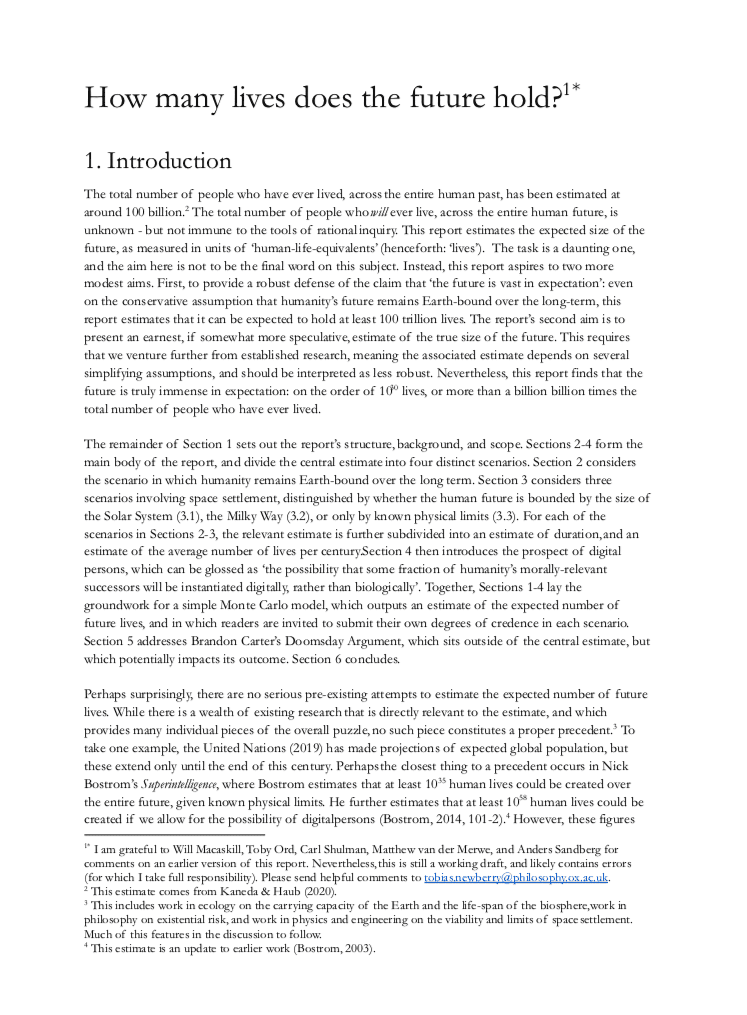How many lives does the future hold?
Toby Newberry (Future of Humanity Institute, University of Oxford)
GPI Technical Report No. T2-2021
The total number of people who have ever lived, across the entire human past, has been estimated at around 100 billion.2 The total number of people who will ever live, across the entire human future, is unknown - but not immune to the tools of rational inquiry. This report estimates the expected size of the future, as measured in units of ‘human-life-equivalents’ (henceforth: ‘lives’). The task is a daunting one, and the aim here is not to be the final word on this subject. Instead, this report aspires to two more modest aims...
Other working papers
Respect for others’ risk attitudes and the long-run future – Andreas Mogensen (Global Priorities Institute, University of Oxford)
When our choice affects some other person and the outcome is unknown, it has been argued that we should defer to their risk attitude, if known, or else default to use of a risk avoidant risk function. This, in turn, has been claimed to require the use of a risk avoidant risk function when making decisions that primarily affect future people, and to decrease the desirability of efforts to prevent human extinction, owing to the significant risks associated with continued human survival. …
Estimating long-term treatment effects without long-term outcome data – David Rhys Bernard (Paris School of Economics)
Estimating long-term impacts of actions is important in many areas but the key difficulty is that long-term outcomes are only observed with a long delay. One alternative approach is to measure the effect on an intermediate outcome or a statistical surrogate and then use this to estimate the long-term effect. …
The scope of longtermism – David Thorstad (Global Priorities Institute, University of Oxford)
Longtermism holds roughly that in many decision situations, the best thing we can do is what is best for the long-term future. The scope question for longtermism asks: how large is the class of decision situations for which longtermism holds? Although longtermism was initially developed to describe the situation of…

